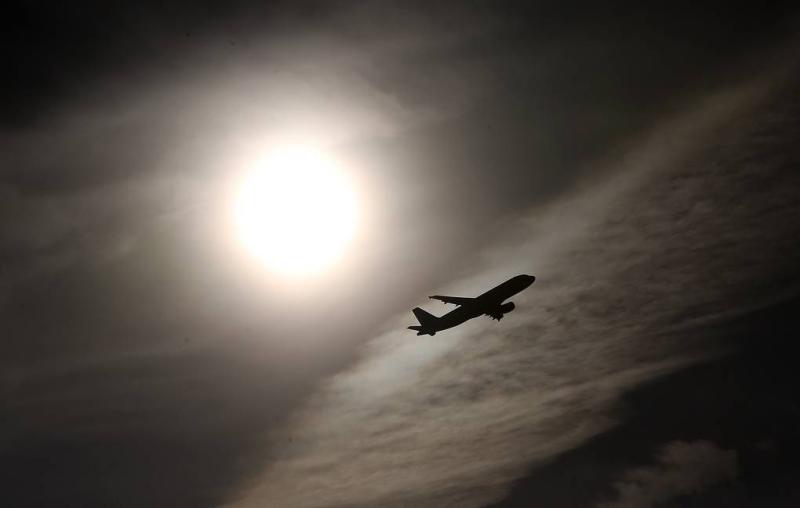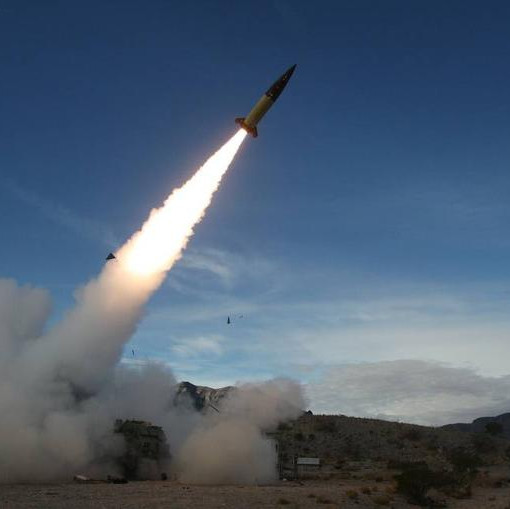
© Artyom Korotayev/TASS
Top stories from the Russian press on Thursday, May 11th, prepared by TASS
Russia resumes direct flights to Georgia and waives visa requirements for Georgian citizens; Moscow to withdraw from the Treaty on Conventional Armed Forces in Europe; China may be the next target of EU sanctions; and four-party Moscow talks reach agreement on drafting roadmap for settling Syria-Turkey relations. These stories topped Thursday’s newspaper headlines across Russia.
Izvestia: Russia resuming direct flights to Georgia, cancelling visa regime for Georgians
Russian President Vladimir Putin issued a decree ordering the resumption of direct flights to Georgia and, effective May 15, cancelling Russia’s visa regime for Georgian citizens. Despite the positive signal from Moscow, however, Georgia's president called Russia's decision a "provocation" and called for the Security Council to convene to discuss introducing visas for Russian citizens. Meanwhile, the South Caucasus country's Foreign Ministry praised the Russian authorities' move to abolish the visa regime. A senior member of Russia’s Federation Council (upper house of parliament) told Izvestia that the move by Putin was actually intended to help people living in both Russia and Georgia.
"Given all the complications in interstate relations, social relationships between people represent a sort of capital that could probably ultimately help to straighten out [the problems in] interstate relations," Federation Council Deputy Speaker Konstantin Kosachev told the newspaper.
"It is important to understand that the bilateral relationship between Russia and Georgia is divided into two blocks. The first one is political, and this track is completely frozen. The second is the area of trade and economics, and here the situation is the exact opposite; we are seeing year-on-year growth [in trade turnover]," Vadim Mukhanov, head of the Caucasus sector at the Russian Academy of Sciences’ Primakov Institute of World Economy and International Relations (IMEMO RAS), told Izvestia
Meanwhile, the decision to resume direct flights to Georgia has been in the works for some time, according to Alexan Mkrtchyan, vice president of the Alliance of Russian Travel Agencies (ATA). Georgia is now under unprecedented pressure from the West to sever ties with Russia and impose sanctions, he told Izvestia. "The restoration of flights to Georgia has been the best thing to happen in the tourism industry since the start of the year. It is obvious that the flow of tourists from Russia will increase many times over once direct flights become available," he added.
Vedomosti: Four parties to Moscow talks agree to draft roadmap for Syria-Turkey settlement
The foreign ministers of Russia (Sergey Lavrov), Turkey (Mevlut Cavusoglu), Syria (Faisal Mekdad) and Iran (Hossein Amir-Abdollahian) agreed on May 10 in Moscow to instruct their deputies to draft a roadmap for the restoration of relations between Ankara and Damascus. The effort should be carried out in coordination with the defense ministries and intelligence services of the four countries, Vedomosti writes. According to the Russian Foreign Ministry's press office, all parties reaffirmed their commitment to Syria's territorial integrity.
A quick departure of outside military forces, including Turkish troops, from Syrian territory should not be expected in the near future, however, Andrey Zeltyn, senior lecturer at the School of Asian Studies at the Higher School of Economics (HSE University), told the newspaper. "[Turkish President] Erdogan will not withdraw troops from Syrian territory before the elections in order to maintain his ratings, as the opposition would then portray him as a leader who sacrificed money and people’s lives only to achieve a stalemate. The military will not be withdrawn even after the elections," the expert said.
"Any [Turkish] politician who announces the suspension of military operations would lose a lot of credibility. The only way that Ankara would agree to leave Syria would be if it were promised the type of security guarantees that Damascus cannot provide, but the leading Arab states - Saudi Arabia and the United Arab Emirates - can," the analyst added.
At the start of the talks, the Russian foreign minister also stated that the US, whose military forces are also present in Syria without authorization from the government in Damascus, has begun to form the so-called "Free Syria Army" in the north of the country.
According to Nikolay Surkov, researcher at the Center for Middle Eastern Studies at the Russian Academy of Sciences’ Primakov Institute of World Economy and International Relations (IMEMO RAS), the US is attempting to thwart efforts to resolve the Syrian issue. "Although the US lacks the resources to effect a regime change [in Damascus], it can influence the dynamics of processes in Syria and throughout the region through its allies," he said.
Kommersant: Russia to withdraw from Treaty on Conventional Armed Forces in Europe
The Russian government intends to denounce the Treaty on Conventional Armed Forces in Europe (CFE), and a relevant draft decision could be discussed by lawmakers as early as next week. The move is expected to make no difference to Moscow, which de facto halted its membership in the treaty in 2007 when NATO countries refused to ratify an amended version, Kommersant writes. According to the newspaper, from a geopolitical standpoint, this is another step toward revising relations with the West.
According to Evgeny Buzhinsky, former head of the Russian Defense Ministry's international treaty department, the United States and its European allies are to blame for the fact that the treaty began to fall apart, linking its ratification to the situation in Georgia and Moldova and making increasingly stringent demands over time.
From an arms control perspective, Russia's final withdrawal from the CFE Treaty "is a milestone," the expert added. At the same time, he believes that after some time has elapsed, but "not in a year or two," Russia, the United States and European countries will revisit this issue.
"Now, this historical anachronism will finally become a thing of the past," Konstantin Kosachev, deputy speaker of Russia's Federation Council (upper house of parliament), said. "However, this does not close the issue. The amended version [of the treaty] still exists and can be discussed further, but new types of weapons, such as UAVs and other systems that have appeared since 1990, should be added to it immediately," he stressed.
By denouncing the CFE Treaty, Russia, according to Kosachev, "removes from the agenda a document that does not correspond to [current] realities, but [the denunciation] does not put an end to the issue of dialogue on conventional arms control."
Nezavisimaya Gazeta: Russia’s Asian partners could become latest target of EU sanctions
The EU has begun the process of agreeing on its latest package of anti-Russian sanctions, which could hurt China. Meanwhile, Beijing has vowed to retaliate against any unilateral sanctions imposed on Chinese companies. Experts told Nezavisimaya Gazeta that the deterioration of economic relations between China and the EU will further divide the global economy, which would in turn affect Russia.
As part of the EU’s new 11th package of anti-Russian sanctions, restrictions may be imposed on seven Chinese companies, for allegedly selling weapons-related goods to Russia. According to the Financial Times, in addition to the Chinese companies, sanctions could be imposed on companies based in Iran, Armenia, the United Arab Emirates and Syria.
According to Boris Pivovar, senior lecturer at the Russian Presidential Academy of National Economy and Public Administration (RANEPA), such a move will show the EU to be an unreliable economic partner for China. "For the EU, of course, such steps will have a negative impact; investments, production capacities and goods will disappear," he said. According to the expert, the worsening of economic relations between the EU and China will only help to boost relations between Russia and China.
However, in the long run, Russia may suffer if relations between China and the EU deteriorate. "As a result, the number of Chinese suppliers will be reduced, and the prices of Chinese goods may increase while the quality decreases. This will undoubtedly complicate the situation for the Russian economy in terms of product imports and energy exports," Maksim Chepov, CEO of RFC Group, a logistics company, told Nezavisimaya Gazeta.
Izvestia: Russia to reinforce military infrastructure along border with Finland
Helsinki hosted negotiations with the United States in late April. As a result, Finland and the United States are seeking to sign a defense cooperation agreement (DCA). In particular, the DCA would allow the US to establish military bases in Finland. In response, Russia will strengthen its military infrastructure along its lengthy border with Finland, the head of the Russian delegation to the Vienna talks on military security and arms control, Konstantin Gavrilov, told Izvestia. The Finnish Institute of International Relations, on the other hand, stated that the country's agreement with the US will not be directed against anyone, including Moscow.
"An army corps will be formed and [the border zone] will be flooded with air defense systems, and the military infrastructure will be strengthened," Gavrilov told the newspaper.
According to the Russian embassy in Helsinki, Finland's accession to NATO requires that Moscow take "retaliatory measures to stop the new threats to national security arising from this fact."
According to Nikita Lipunov, an analyst at the Institute for International Studies at the Moscow State Institute of International Relations (MGIMO University), "Finland, yielding to US pressure, has finally given up its independent security policy and is now considered by Moscow to be an ordinary member of an alliance of unfriendly states." He told the newspaper that rewriting the terms of the lease to the Russian section of the Saimaa Canal, up to and including the point of blocking it, could be one of the economic levers available to Russia to influence Helsinki now that Finland has joined NATO.









